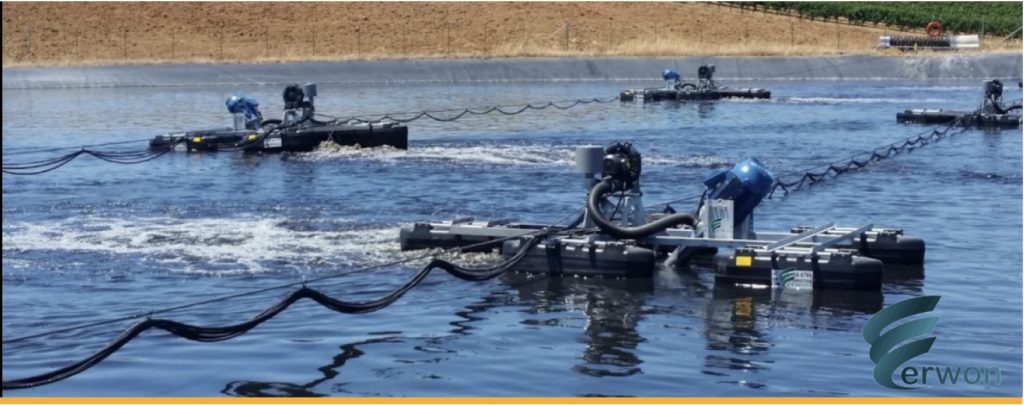
POND & LAKE AERATION:
Oxygen serves as the most essential component to the health of a body of water. Pond & Lake aeration is the simple, yet effective, process of increasing oxygen levels in a pond and can not only greatly enhance the aesthetic beauty of a pond/Lake, but can also improve the natural systems taking place beneath the water’s surface. Aeration creates desertification of the water column, as lakes and ponds typically consist of stratified layers separated mainly by different temperature and oxygen levels. Natural resource and environmental managers are often challenged by problems caused by the lake and pond stratification. The main purpose of aeration is to increase and stabilize the amount of dissolved oxygen in the entire water column and this has a widespread effect on many different aspects of pond and lake health.
Water quality is also greatly improved through the use of aeration. Under oxygen-deprived or anoxic conditions, lake-bottom sediments release various gases and metals that can cause water quality problems. Proper aeration will allow for many of the factors contributing to poor water quality to be released at the oxygen-water interface. Aeration cannot only enhance water quality by stabilizing pH, reducing alkalinity, and removing carbon dioxide but can also greatly decrease the cost of pond treatments.
Aeration can also reduce the number of pond algae through a variety of processes. Through aeration, algae spores can be mixed towards deeper lake and pond areas, reducing the amount of time it is exposed to valuable sunlight and availability to grow.
Another important benefit of aeration is the reduction of Phosphorus (P) concentrations in ponds. Phosphorus is needed to support algae blooms, and once phosphorus enters a pond’s ecosystem it is very difficult to remove. It accomplishes this by using an oxidation reaction that causes the phosphorus to bind with naturally occurring iron. Once bound to the iron, this new form of phosphorus precipitates into the sediments where it remains unavailable for plant and algae growth as long as sufficient levels of dissolved oxygen are maintained.
Overall, it provides many different benefits to a pond’s ecosystem. Besides enhancing pond fish habitats, improving water quality, reducing algae, and removing phosphorus, aeration can also break down unwanted bacteria, help with mosquito problems, and remove foul odours from a pond — all by circulating the water and adding dissolved oxygen.


Know More about Pond Purification Products – www.pondpurify.com



